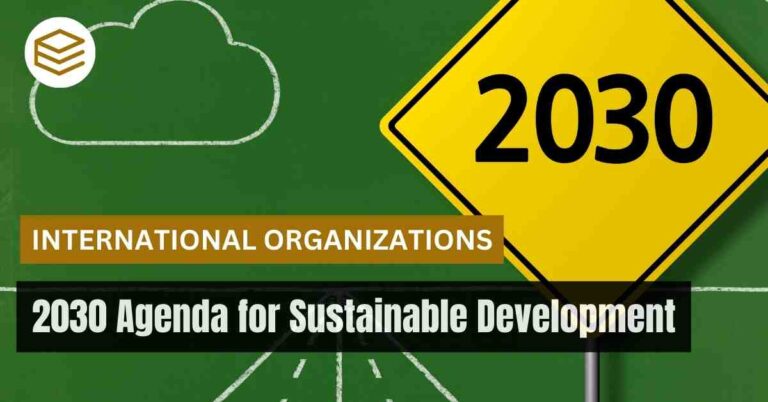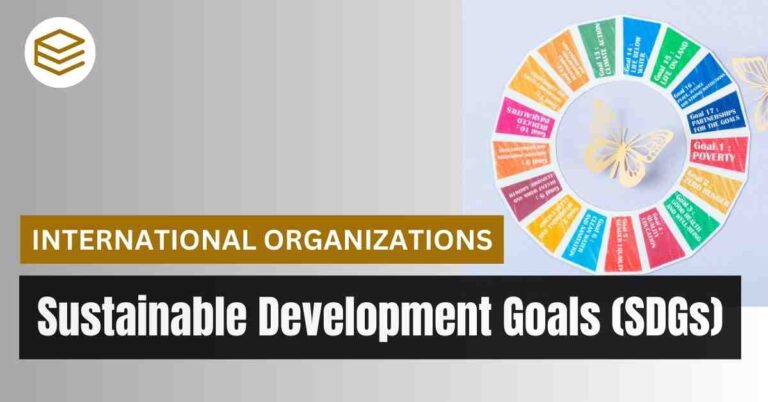January 25, 2026 7:28 am
The Right to Information (RTI) Act, 2005 is a landmark legislation in India that empowers citizens to access information under the control of public authorities. It aims to promote transparency, accountability, and participation in governance. For UPSC aspirants, understanding the RTI Act is crucial not only for prelims and mains but also for essays and interviews, where the themes of governance, democracy, and rights frequently appear.
What is the Right to Information (RTI) Act?
The RTI Act, 2005, came into force on October 12, 2005, with the primary objective of ensuring citizens’ access to information from public authorities. It empowers individuals to request information from government bodies, making public institutions more transparent and accountable.
Salient Features of the RTI Act
- Scope:
- Applicable to all constitutional authorities, including the executive, legislature, and judiciary, as well as government departments and PSUs.
- Excludes bodies like intelligence agencies (e.g., RAW, IB) except when the information pertains to corruption or human rights violations.
- Rights Granted:
- Right to inspect work, documents, and records.
- Right to obtain information in print, electronic, or photocopy formats.
- Right to seek information within 30 days (48 hours in cases involving life or liberty).
- Public Information Officers (PIOs):
- Every public authority must appoint PIOs to process RTI requests and ensure compliance.
- Exemptions (Section 8):
- Information that may endanger sovereignty, security, or integrity of India.
- Information protected by parliamentary privilege.
- Personal information unrelated to public interest.
- Penalty for Non-Compliance:
- Penalties on PIOs for delayed responses, providing false information, or denying information without reason.
- Appeal Mechanism:
- First appeal to the senior officer in the same public authority.
- Second appeal to the Central Information Commission (CIC) or State Information Commission (SIC).
Amendments to the Right to Information (RTI) Act, 2005
Since its inception in 2005, the Right to Information (RTI) Act has undergone amendments, most notably in 2019, that have sparked significant debate. These amendments primarily focused on the tenure, salary, and service conditions of Information Commissioners, raising concerns about the Act’s autonomy and effectiveness. Below is an in-depth analysis of the amendments and their implications:
1. The RTI (Amendment) Act, 2019
Key Changes Introduced
- Tenure of Information Commissioners:
- Earlier Provision: Under the RTI Act, 2005, the Chief Information Commissioner (CIC) and State Information Commissioners (SICs) held office for a fixed term of 5 years or until the age of 65, whichever was earlier.
- Amended Provision: The tenure of the CIC and SICs is now to be determined by the Central Government.
- Salary, Allowances, and Service Conditions:
- Earlier Provision: The salaries, allowances, and service conditions of the CIC were equivalent to those of the Chief Election Commissioner (CEC), and for SICs, equivalent to Election Commissioners.
- Amended Provision: The salaries, allowances, and service conditions are now determined by the Central Government.
- Autonomy of Information Commissions:
- The earlier provisions ensured parity with constitutional bodies like the Election Commission, reflecting the RTI’s importance in governance.
- Post-amendment, there are concerns about the erosion of autonomy, as the central government can now exercise significant control over Information Commissioners.
2. Rationale Behind the Amendments
The government justified these amendments on the following grounds:
- Administrative Efficiency: The changes were claimed to streamline the functioning of Information Commissions by aligning their service conditions with other statutory bodies.
- Flexibility: By removing rigid salary and tenure structures, the government argued that it could appoint suitable individuals under evolving requirements.
3. Criticism and Concerns
The amendments have been widely criticized by activists, legal experts, and civil society organizations for potentially undermining the independence of the RTI framework.

3.1 Autonomy at Risk
- By centralizing control over tenure and salaries, the amendments make Information Commissioners susceptible to political influence, reducing their ability to act impartially.
3.2 Dilution of Parity with Constitutional Bodies
- The earlier provisions equated Information Commissioners with constitutional authorities like the Chief Election Commissioner, emphasizing the RTI’s pivotal role in democracy. The amendments are seen as downgrading the status of the Information Commissions.
3.3 Impact on Accountability
- Information Commissioners play a crucial role in ensuring accountability by addressing appeals and complaints under the RTI Act. The perception of reduced autonomy may discourage officials from taking bold decisions against powerful interests.
3.4 Weakening of Grassroots Democracy
- RTI has been instrumental in empowering citizens, particularly marginalized groups, to demand transparency. The amendments are viewed as an attempt to weaken this empowerment.
4. Implications of the Amendments
4.1 For Information Commissioners
- Reduced Authority: Information Commissioners may face difficulties in maintaining neutrality due to their increased dependence on the central government.
- Operational Delays: A lack of clarity on service conditions may lead to procedural inefficiencies.
4.2 For Citizens
- Erosion of Trust: Citizens may perceive Information Commissions as less effective in upholding transparency.
- Reduced Participation: If the RTI mechanism is seen as compromised, citizens may be discouraged from utilizing it.
4.3 For Governance
- Weakened Oversight: By undermining the independence of Information Commissions, the amendments may weaken oversight of public authorities.
- Chilling Effect: Public officials might exploit these changes to avoid scrutiny, knowing that Information Commissions have less autonomy.
5. Responses to the Amendments
5.1 Activists and Civil Society
- Activists like Aruna Roy and organizations like the National Campaign for People’s Right to Information (NCPRI) have strongly opposed the amendments, calling them a blow to the RTI’s spirit.
5.2 Legal Challenges
- Several petitions challenging the amendments have been filed in courts, arguing that they violate the basic structure of the Constitution by undermining transparency and accountability.
5.3 Political Reactions
- While the government defended the amendments as necessary administrative changes, opposition parties labeled them an attempt to weaken democracy.
Significance of the RTI Act
1. Enhancing Transparency and Accountability
- Promotes open governance by reducing corruption and arbitrary decision-making.
- Ensures that citizens can hold public officials accountable for their actions.
2. Empowering Citizens
- Bridges the information gap between the government and the public, fostering participatory democracy.
- Empowers marginalized communities to demand access to entitlements, welfare schemes, and justice.
3. Strengthening Governance
- Aids in better policy-making as officials are aware of being scrutinized.
- Increases efficiency in administration by eliminating unnecessary delays and red tape.
4. Promoting Social Justice
- Helps expose corruption, malpractices, and nepotism in various public systems, including PDS, MGNREGA, and healthcare services.
5. Judicial Significance
- The RTI Act supports Article 19(1)(a) of the Constitution, which guarantees the right to freedom of speech and expression, encompassing the right to know.
Challenges and Limitations of the RTI Act
Despite its transformative potential, the RTI Act faces several challenges:
1. Non-Compliance by Public Authorities
- Delays in appointing PIOs or furnishing information discourage applicants.
- Some public authorities evade scrutiny by denying information or citing exemptions under Section 8.
2. Misuse of RTI
- Frivolous or repetitive applications burden public officials and dilute the essence of the Act.
- Some applicants use RTI as a tool for harassment or blackmail.
3. Lack of Awareness
- Many citizens, especially in rural areas, remain unaware of their right to seek information.
4. Threats to RTI Activists
- Whistleblowers and activists face harassment, threats, and even violence, deterring others from seeking information.
5. Overburdened Information Commissions
- Pending appeals and complaints in CIC and SICs lead to delays in resolution.
6. Recent Concerns
- Amendments to the RTI Act in 2019 raised concerns about the autonomy of Information Commissions, as their terms and salaries are now determined by the central government.
Landmark Judgments Related to RTI
1. Union of India v. ADR (2002)
- Supreme Court held that citizens have a right to know the antecedents of candidates contesting elections, emphasizing the RTI Act’s role in promoting electoral transparency.
2. CBSE v. Aditya Bandopadhyay (2011)
- Supreme Court ruled that examination answer sheets fall under the RTI Act’s ambit, allowing students to access their evaluated sheets.
3. Raj Narain Case (1975)
- Established the principle that the right to know is an extension of freedom of speech, later codified by the RTI Act.
Previous Year UPSC Questions on RTI
Prelims Questions
- UPSC Prelims 2018:
Q: Which of the following is not exempt under Section 8 of the RTI Act?
a) Information endangering national security
b) Cabinet papers
c) Personal information unrelated to public interest
d) Information related to corruption in intelligence agencies
Answer: d - UPSC Prelims 2015:
Q: The term “Public Authority” under the RTI Act refers to:
a) Only the Executive
b) All constitutional and statutory bodies
c) Intelligence agencies
d) None of the above
Answer: b
Mains Questions
- UPSC GS-II Mains 2019:
Q: Discuss the significance of the Right to Information Act in promoting transparency and accountability in governance. Highlight the challenges in its implementation. - UPSC GS-II Mains 2016:
Q: “The Right to Information is an effective tool to empower the citizens.” Examine how RTI can improve governance.
Practice Questions for UPSC
Prelims Practice Questions
- Which of the following bodies is exempt under the RTI Act?
a) State Information Commission
b) Intelligence Bureau
c) Election Commission of India
d) Comptroller and Auditor General
Answer: b - Under the RTI Act, Public Information Officers are required to respond within:
a) 7 days
b) 15 days
c) 30 days
d) 60 days
Answer: c
Mains Practice Questions
- GS-II: “RTI is a double-edged sword—it empowers citizens but can also overwhelm public authorities.” Analyze this statement in light of the Act’s implementation.
- GS-II: Critically evaluate the impact of the 2019 amendments to the RTI Act on the autonomy of Information Commissions.
Way Forward for the RTI Act
- Awareness Campaigns:
- Initiate mass awareness drives, especially in rural areas, to educate citizens about their rights under the RTI Act.
- Capacity Building:
- Strengthen CICs and SICs by appointing adequate staff and reducing the backlog of cases.
- Whistleblower Protection:
- Enact robust laws to protect RTI activists from harassment and violence.
- Digital Platforms:
- Promote online RTI portals for easier filing and tracking of applications.
- Accountability for Officials:
- Impose stricter penalties on public authorities that fail to comply with RTI requests.
Conclusion
The Right to Information Act, 2005, is a cornerstone of democratic governance in India, empowering citizens to participate in the decision-making process and hold public officials accountable. Despite its challenges, the RTI Act remains a critical tool for ensuring transparency and rooting out corruption. For UPSC aspirants, a thorough understanding of the RTI Act is vital, as it is not only a topic for the exam but also a principle that underpins effective governance and ethical administration.






Dear learnpro.in webmaster,
Are you looking for affordable, high-quality traffic that actually converts?
We offer the cheapest 100% human traffic on the market—fully Google Analytics traceable and from Tier 1 countries like the USA, UK, and Canada.
Why Choose Us?
✅ 100% Human Visitors – No bots, real people!
✅ Google Analytics Verified – Track every visit in real time
✅ Proven Success – 1,500+ customers making money with our traffic
✅ Adsense & Ad Network Safe – Perfect for monetization
✅ Huge Network – Your banner will be placed on 300+ websites
✅ Lowest Prices – Get the best traffic at the cheapest rates
Try 50 Visitors for FREE!
Test our traffic, check your Google Analytics, and see the proof for yourself. We’re confident that once you try us, you’ll be a customer for life!
Ready to grow your business?
Contact us now at kiyablaze@gmail.com and get started today!
Best regards,
Kiya Blaze
Dear CEO,
We are an investment and funding firm, working in alliance with a high-net-worth group to provide financing at minimal interest rates. We believe that a strategic partnership between our organizations could create substantial value for both parties.
We would be delighted to share more details about this opportunity upon your response. Please feel free to reach out if you require any additional information or would like to discuss this further.
Looking forward to your thoughts.
Best regards,
Art Allen
Dear Learnpro,
I hope this message finds you well. I am reaching out to inquire about your company’s current capacity availability, as we have an upcoming project slated to commence in the second half of the year. We would appreciate it if you could provide a quotation for your services to help us proceed with planning.
Looking forward to your feedback.
Best regards,
Matt Papenfus
Managing Director
Turnerconstuction.com